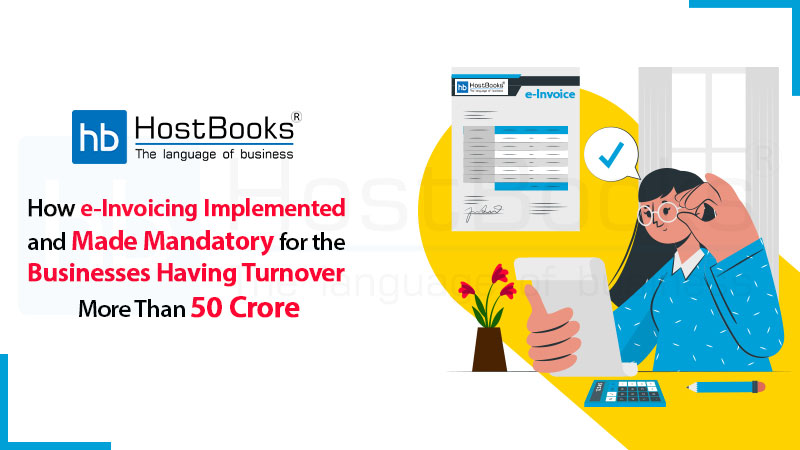How E-Invoicing Implemented and Made Mandatory for the Businesses Having Turnover More Than 50 Crores

The Central Government has mandated the generation of e-invoice for the transactions in business having turnover more than 50 crores, from April 1, 2021. Before that, it was mandatory for businesses having turnover of more than 500 crores and 100 crores to generate e-invoices in B2B transactions under the Goods and Services Tax (GST) Act.
The Government has made this move to curb GST tax evasion. In May 2019, the Central Government set up the first committee to discuss the usefulness and implementation of e-invoicing in India considering the success of e-invoicing globally. Since then, several schemes were purposed, and finally, e-invoicing was introduced in January 2020. It was made mandatory from 1st October, 2020 in a phased manner by GST Council.
In the first phase, from 1st October, 2020, e-invoicing had been implemented for the businesses having turnover more than Rs.500 crore. In the second phase, from 1st January, 2021, it’s been made mandatory for the businesses having turnover more than Rs.100 crore. In the third phase, from 1st April, 2021, generation of e-invoices become mandatory for businesses having turnover more than Rs.50 crore.
With the introduction of the e-invoice scheme, it is clear that the Central Government is determined to accelerate the rise of the digital economy in the country. However, Business comes under this segment will have to work fast to adopt the changes. Evidently, e-invoicing software will play a major role in helping businesses to comply with new e-invoicing rules./span>
How e-invoice is generated?
In a notification issued by the Central Board of Indirect Taxes and Customs (CBIC), it has been notified that businesses with a turnover of more than Rs 50 crore must generate e-invoices from April 1, 2021. Under this system, registered persons have to generate invoices on their internal systems such as ERP or accounting, or any billing software. Then it has to be sent online on the Invoice Registration Portal (IRP). The IRP verifies the information provided in the invoice. Henceforth the invoice is sent back to the registered person by digitally signing a specific invoice reference number (IRN) with the QR code.

